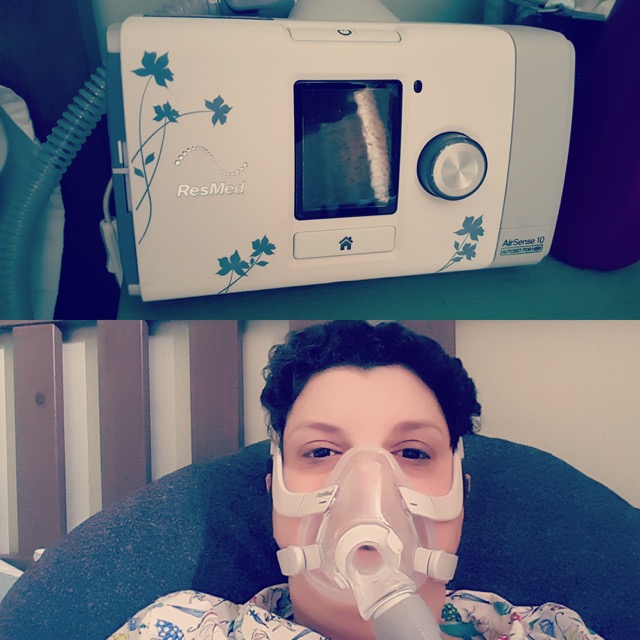I Can't Get No Sleep
Apr 26, 2018
In 1995 Faithless sang to us about Insomnia.
You’ve probably noticed that one of the recurring topics I keep bringing up is how tired I am, and how much fatigue affects my ability to lead a normal life. It’s not Insomnia as such, as I do get sleep. I’m asleep for up to 11 hours a night, but the quality of my sleep is dreadful. I’ll often get up in the night to go to the loo, or for no reason at all. I also sleep walk, sleep talk, and wave my arms around. (I am fully aware of how weird that all sounds, especially the last bit!)
I’ve had test after test to try and get to the bottom of it. All anyone could tell me was that it was most possibly just culmination of the affects of all the treatments that I’ve had over the past 4 to 5 years. I sat in the GP’s office and sobbed because I was so tired all the time, and yet their seemed to be no real or concrete explanation. I was not waking up refreshed. I had headaches. I felt like I had cotton wool behind my eyes. I’d hit a wall at 3pm and have to have a nap. My energy levels were so low, I’d find it hard to muster any enthusiasm to leave the house. I was finding it difficult to concentrate and I was starting to think I should stop driving as although I don’t drive far, or very often, I knew things were deteriorating. It was all a mystery…until now.
Whilst seeing my oncologist in February, we spoke again about my tiredness, and what could be causing it. He suggested that he could refer me to a Sleep Clinic, as he’d recently had a patient who was also complaining of tiredness and fatigue and had been diagnosed with Obstructive Sleep Apnoea. He did warn me that if it was this condition, then it would have life changing repercussions. This suggestion was a new one, so even with the potential consequences, we got the ball rolling asap, and in March, I went to my local hospital which very handily has a Sleep Clinic. I was given a piece of machinery which would record my blood oxygen saturation levels via a clip on my finger, and how often I breathe by having little air tubes by my nose. I was to use this for one night only, return the machine, and they would review the data.
In April, I went to see the Sleep Clinic Consultant, who after a short preamble, told me I had severe Obstructive Sleep Apnoea (OSA). OK, great, so what’s that then! According to the NHS Website it’s:
“Obstructive sleep apnoea (OSA) is a relatively common condition where the walls of the throat relax and narrow during sleep, interrupting normal breathing. This may lead to regularly interrupted sleep, which can have a big impact on quality of life and increases the risk of developing certain conditions”.
According to the consultant, everyone wakes up naturally up to four times an hour. The test machine was recording any drop in my blood oxygen saturation levels of 4% or more, and also how many times I stopped breathing. For reference these are the levels:
- Mild OSA - 5-15 apnoea episodes an hour.
- Medium OSA - 15-30 apnoea episodes an hour.
- Severe OSA - 30+ apnoea episodes an hour.
My results were 50+ apnoea episodes an hour. That’s about 1 a minute. And in each episode my brain picks up that not enough oxygen is coming in, so kick starts everything and wakes me up. Some of these I will remember, some I won’t but it’s stopping me from getting into a normal sleep cycle and therefore I’m not getting enough sleep. In fact the quality is very poor indeed.
The consultant then went on to tell me about the treatment and other ramifications. The first one being that I have to stop driving immediately. I can’t even just pop to Tesco. A full informal ban on it until the treatment starts and is proven to work, then I can tell the DVLA I have this condition, but I am being treated successfully for it, with the Sleep Clinic providing proof. Of course I need to start the treatment first.
The treatment comes in the form of a CPAP machine:
“CPAP is a simple machine that pumps air through a mask you wear at night. It’s designed to hold your airway open while you’re asleep. It sends air at pressure into your upper airway to stop it collapsing or narrowing. “
On Tuesday, this week, I went to a CPAP session for new users. There were 3 of us there, me, and two older gentlemen. According to the NHS, there are lots of different people who get OSA for lots of different reasons, however the most common in older overweight men and post menopausal women. So once again, I find myself with a condition that technically I’m too young for. ANd once again, I have to just suck it up.
The CPAP machine is very quiet, and once I’m wearing it, Ross can’t hear it at all. It’s a very odd feeling having to wear it, as it’s unlike anything I’ve worn before. The mask is pressurised so it is sucked onto my face, unlike an oxygen mask you may wear in hospital or similar which just sit on your face. Ross says I look like a fighter pilot!

I’ve been using it for two nights now, and whilst some people get used to it straight away, I’m still not quite there yet. Hopefully, it won’t be long and I can stop feeling like a zombie during the day, and more like a normal person.
So, I’ll do as I always do and keep on, keeping on.
Jx
Share